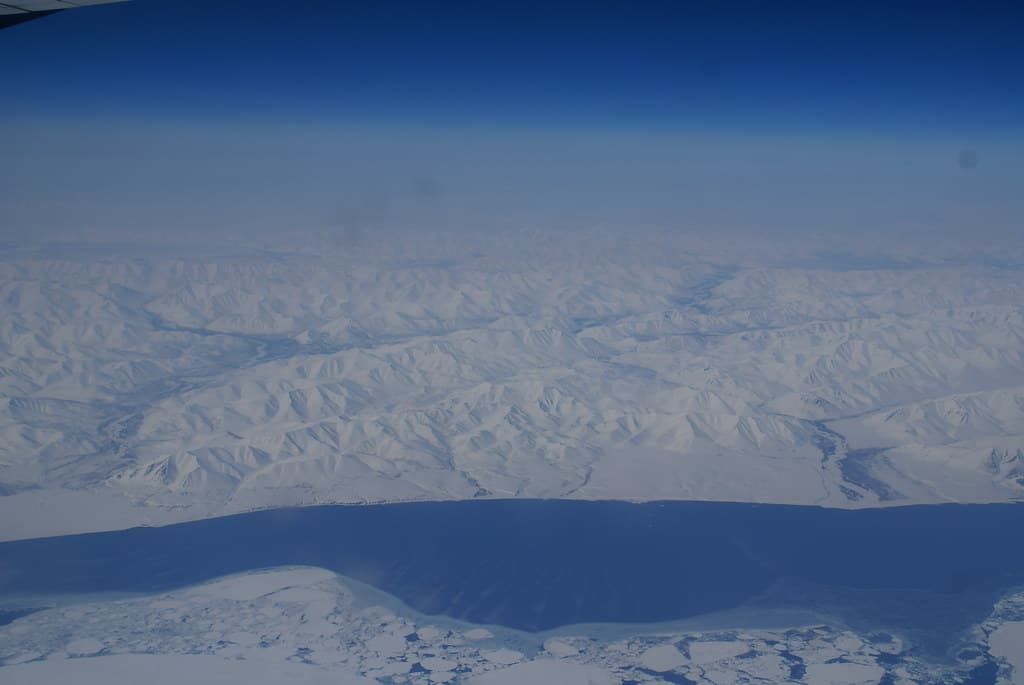Your barren canvas stretches
Tightly across forgotten states;
Caught between unforgiving waves
And starry mountain peaks,
Your pulse beats unhurriedly
In this hibernation of solitude.
Permafrost litters your landscape:
Continuous,
Discontinuous,
Sporadic.
Its frozen core
A hard border to
Fertile soils and
Future disturbance.
But as the ice begins to melt
These borders shift;
Ancient ley lines retreating
North,
Cutting new paths
Across a scenery
That will no longer
Be forgotten.

This poem is inspired by recent research, which has found that climate change could make Siberia more habitable by the end of the twenty-first century.
Siberia (also known as Asian Russia), is defined as the area between the Ural Mountains and the Pacific Ocean. At 13 million square kilometres it accounts for approximately 77% of Russia’s landmass, and yet only 27% of its population. The majority of the population in this region is concentrated to the south, where there is a more comfortable climate and fertile soils. The northern regions of Siberia are far more sparsely populated because of its short summers and long, brutally cold winters. However, with global warming brought about by human-made climate change, this might no longer be the case for very long.
By modelling both mild and extreme climate change scenarios over the course of the twenty-first century, this new research has found that by the 2080s Siberia would become much warmer, the permafrost zone would significantly shift to the northeast of the region, and the ecological landscape potential (a measure to determine the capacity of a landscape to support human settlements) would increase from ‘low’ to ‘relatively high’. These three factors would ultimately result in Siberia being able to support a much higher population density, even in the case of mild climate change. Given that vast regions of Siberia are likely to become more habitable in the near future, it is vital that suitable land development policies are developed to cater for the resulting human migration.
An audio version of this poem can be heard here:
Dear Nadja, I was very impressed with the poem and the recent research that has found that climate change could make Siberia more habitable by the twenty-first century. But there is also the terrifying thought that the current fires in Siberia may have been ‘helped’ by human hand to hasten and aid the ‘suitable land developments’. And there was no/little effort to contain these fires when first detected. Especially with the comment from the Kremlin “It would be too expensive to employ the army to assist the regular/official firefighters” Now, if they act, it is too little too late.
Thank you Margaret, but this is Sam. I simply wrote a poem, Nadja and colleagues did the amazing research. 😊